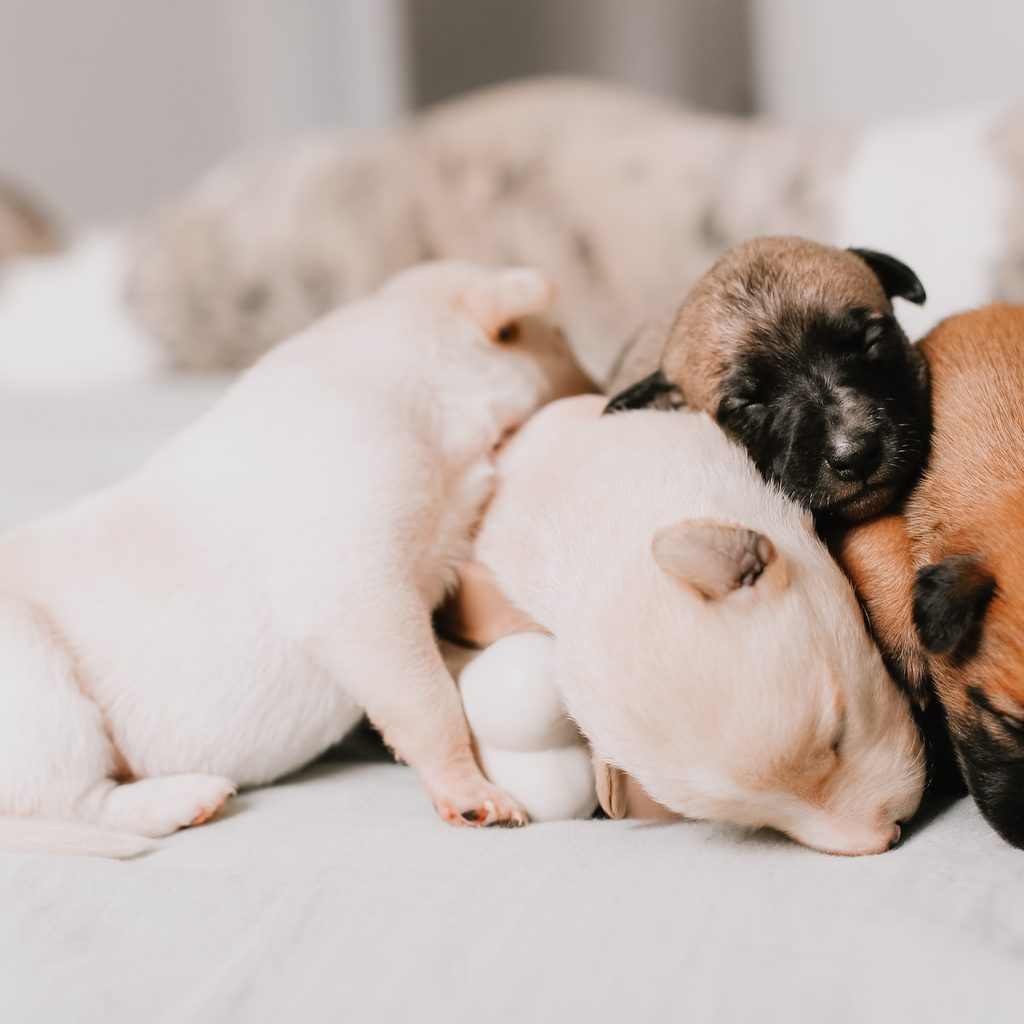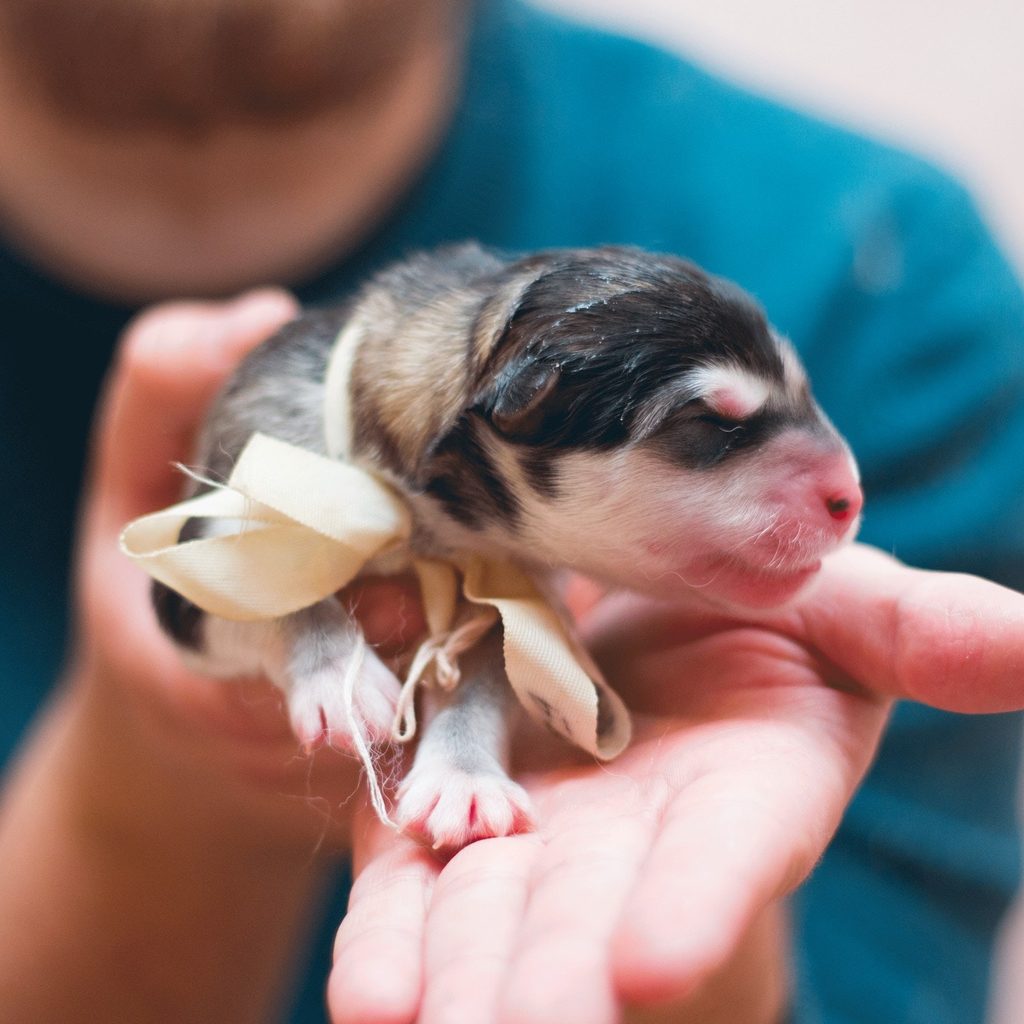As newborns, it’s essential for puppies to stay warm, hydrated, and fed, but some fare better than others. Orphaned pups are often found by good samaritans and pet lovers like you, who otherwise wouldn’t know much about 4-week-old puppy care. Dogs are considered newborns until around 12 weeks, so this early stage of maturity is oh-so-important in their lives.
Three-week-old puppy care can seem daunting, but with trusted guidance and a lot of time, anyone is capable of helping newborn pups thrive. That being said, when newborns are away from their mothers and without care, they’re at high risk — no one should blame themselves if things don’t go as planned. Thankfully, you can give orphaned pups the best chance at growing up happy and healthy by learning about their needs and being prepared. Here’s what you need to know.
Newborn puppies should stay with their mother, if possible
Apart from making newborn pups feel secure, their mother keeps them comfortable, stimulated, and fed. Her body provides warmth that babies need, and her guidance teaches pups how to use their senses, relieve themselves, and play nice with their littermates.
Being separated from their mother may even negatively affect their behavior. Many dogs who weren’t properly weaned from their mother’s milk seek comfort in objects or repetitive actions, according to the American Kennel Club (AKC).
As puppies reach 3 to 6 weeks, they enter an essential socialization period in their development. When with their family, pups learn what constitutes appropriate behavior through the reactions of their mother and littermates, though this becomes more difficult to learn when orphaned. This can lead to long-term behavioral issues, including high reactivity and even aggression.

Medical needs of orphaned puppies
Many physical factors play into a puppy’s overall health, but being without their mother adds even more concerns to the list. One of the most obvious issues is the lack of helpful proteins and nutrients from mother’s milk, which helps build healthy immune systems in pups. Thankfully, this can be solved with puppy-specific milk replacements. It’s always a good idea to weigh newborns regularly to make sure they’re growing; a tracking book helps keep health and mealtime info organized. Consult your vet if a puppy is not gaining weight.
Other concerns for orphaned pups include dehydration and lack of elimination. Without proper nursing, newborns can become dehydrated rather easily. Luckily, a bottle or eyedropper can be used to administer extra milk, or you can take your pup to the vet for more intense hydration. You’ll know your puppy is dehydrated if you can gently pinch the skin at his neck without it returning to its normal position quickly. Puppies cannot urinate or defecate by themselves until about a month of age, so they need help doing so from their mother or caretaker. To do this, VCA recommends “gently stroking the area between the anus and vulva or penis with a warm, moistened cotton ball or soft cloth.”
The ideal temperature for newborn puppies
Because their mother isn’t around to keep them warm, orphaned pups often fall victim to hypothermia or low body temperature. You can use one of several heating methods to keep your fur babies warm instead, including heat lamps and incubators. Their environment should have a temperature of around 80 degrees for a 10-day-old pup. Ideally, according to VCA, a pup’s internal body temperature should be anywhere from 95 to 102 degrees Fahrenheit, depending on their age.
- 95 to 99 degrees for week-old pups
- 97 to 100 degrees for 2- or 3-week-old pups
- 100 to 102 degrees for pups older than 3 weeks
A small enclosure, such as a box covered in blankets, will keep your pup safe and warm. As he gets older, you can increase the size and slowly decrease the temperature of his space.

Feeding orphaned puppies
Feeding orphaned puppies is time-consuming but so, so cute. Once you have commercial milk replacement to feed your pups, you’ll need to decide how you’ll feed them. Tube-feeding puppies is the most precise and easy method, but your vet will need to show you the ropes. When done incorrectly, there’s a high chance your puppy will choke or inhale the milk instead of drinking it.
Bottle feeding is a popular choice for newborn pups, but it’s important to make sure the hole in the nipple allows the puppy to suckle freely like they would on their mother. Without a large enough hole, the pup won’t be able to get milk. Too big a hole, and the milk can easily get into their lungs. The milk replacer shouldn’t drip from the bottle when held upside down but should come out with gentle squeezing. Check out the VCA’s resources for a more detailed guide on how to feed a newborn puppy.
Feel like a new parent yet? Caring for orphaned pups can certainly be a handful, even for experienced pet owners, so don’t worry if you find yourself overwhelmed. It’s never a bad idea to ask your local vet for any tips and tutorials, and there are plenty of other resources available online and in books for just this situation. Good luck, and remember: You’ve got this!




